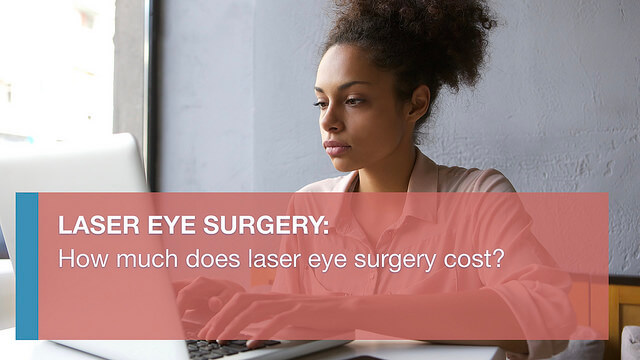
What are the laser eye surgery risks?
What are the laser eye surgery risks? I always reassure my patients that we know that there are complications following laser surgery, they can happen. BAnd because we know them, we do the best we can to prevent them from happening. Fortunately, the risk of severe eye problems after surgery for laser is very minimal. There are different forms of laser surgery. Each carries its own specific or respective risk, and I’ll start with laser surgery for glaucoma.
Laser eye surgery risks for glaucoma
With laser surgery for glaucoma, some patients may have a little bit of discomfort from the procedure. They might have a bit of light sensitivity, irritation or redness, which usually resolves after a day or two with drops.
Laser eye surgery risks for diabetes
Regarding laser surgery for diabetes, some patients may have a bit of residual swelling of the retina after the procedure, which also resolves quite often after a few days or weeks without any treatment.
Laser eye surgery risks for refractive eye surgery
The most commonly performed surgery, which is refractive laser eye surgery, also carries a few risks. Thankfully, the risk of serious problems is minimal. Most patients go through the procedure with hardly any complications at all. Some patients may experience a slight decrease in vision or loss of contrast sensitivity meaning that they’re not able to determine precisely the difference between different shades of colour. If they’re looking at something against not a very clear background, things won’t appear that clear. Some patients also lose what we call best-corrected distance visual acuity, which means that their vision isn’t as good as it was before the surgery with their best correction.
The risk of severe complications like infection or actual loss of vision is minimal indeed, and that’s because we take the best steps to prevent that from happening. We ensure that we have the latest equipment that is sterilised and prepared. Most of the time, we use what we call custom packs which come already pre-sterilised, which reduces the risk of infection.
We also take the necessary steps by giving post-operative drops to prevent infection and inflammation. By and large, it’s a very safe procedure so long as there’s an indication for performing it, and as long as you’ve assessed your surgeon and felt that they could operate on you. I think it’s a good option.
About the author
Leonard Teye-Botchway
Consultant Ophthalmic Physician and Surgeon |MBChB, FRCS(G), MBA, FWACS, FGCS, DCEH (Lond), Postgraduate Diploma in Cataracts and Refractive Surgery
I am Leonard Teye-Botchway and I am the Medical Director and Consultant Ophthalmologist at Bermuda International Institute of Ophthalmology in Bermuda. The joy and elation I get from seeing patients who are very happy they can see after surgery is almost unimaginable. This is what really drives me to carry on being an ophthalmologist.
We have sourced some or all of the content on this page from The American Academy of Ophthalmology, with permission.




